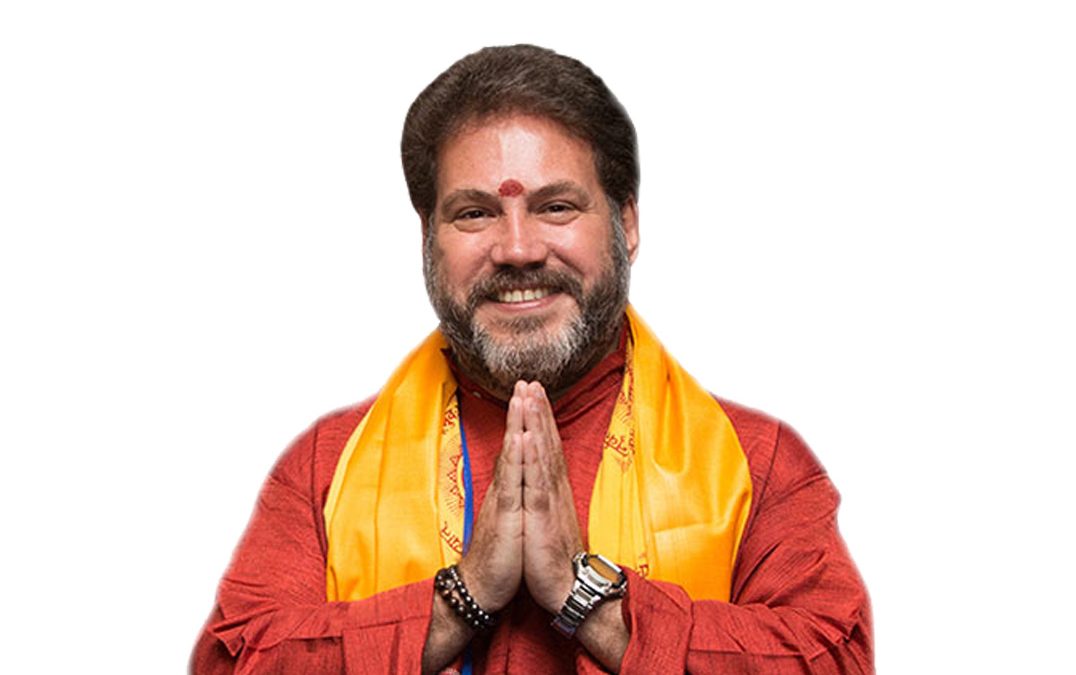The Indian Yoga Association (IYA), Uttar Pradesh Chapter, played a significant role in the Women Empowerment Seminar organized by the Institute Innovation Council (IIC) at SD College of Commerce. The event was a resounding success, bringing together experts and dignitaries to discuss critical issues surrounding…
Yoga, our ancient cultural heritage, understands health and wellbeing as a dynamic continuum of human nature and not a mere ‘state’ to be attained and maintained. Yogi Swatmarama, author of the Hathayoga Pradipika, gives us the assurance, “One who tirelessly practices Yoga attains success irrespective of whether they are young, old decrepit, diseased or weak”.
The central theme of Yoga is the Golden Mean (yukta), finding the middle path, a constant search for moderation and a harmonious homoeostatic balance. Proper practice and living of the Yogic principles produce an inner balance that gives stability and calm even in the midst of chaos. This ancient science shows its adherents a clear path to the “eye of the storm” and ensures a stability that endures within, even as the cyclone may rage on externally.
The vast science of Yoga offers us many tools to obtain, maintain or regain our mental health and wellbeing.
A few of them are listed below:
Tools to induce psycho-physical harmony: Asana-s (static postures), kriya-s (systematic and rationale movements), mudra-s (seals of neuromuscular energy) and bandha-s (locks for neuromuscular energy) gently stretch and strengthen the musculoskeletal system in a healthy manner. They improve mobility and flexibility of the different joints and groups of muscles. There is also concomitant improvement in the systemic function such as respiration, circulation, metabolism, digestion and elimination. A general sense of health and wellbeing is also promoted by these aspects of Yoga that help release feel good hormones like endorphins and encephalins.
Tools to balance emotional volatility:
Swadhyaya (introspectional self analysis), pranayama (breathing techniques for control of vital energy), pratyahara (sensory withdrawal), dharana (intense concentration), dhyana (meditational oneness) and bhajana (devotional music) stabilize emotional turmoil and relieve stress and mental fatigue. They bring about an excellent sense of emotional balance that is vital for good health. Group work also enables achievement of emotional balance essential for good health.
Development of appropriate psychological attitudes:
Yoga encourages us to step back and take a meta-cognitive, objective view of our habitual patterns of behavior and thoughts. This enables us to cope better with situations that normally put our bodies and minds under strain. Maharishi Patanjali emphasizes the need to develop following qualities in order to become mentally balanced humane beings. He emphasizes abhyasa (relentless positive self-effort) and vairagya (dispassionate attitude) along with ishwara pranidhana (acceptance and humility of the universal plan). He provides an antidote to the stress pandemic by suggesting change in our inner perspective through pratipaksha bhavanam (adoption of the contrary attitudes in the face of negativities). He advises us to develop clarity of mind (chitta prasadanam) through adoption of four conscious attitudes: namely maitri (friendliness towards those who are at peace with themselves), karuna (compassion for the suffering), mudita (cheerfulness towards the virtuous) and upekshanam (indifference and avoidance of the evil).
Contemplation, relaxation and meditation:
There are a great many Jnana Yoga and Raja Yoga techniques of relaxation and visualization that are useful. Other practices such as trataka (concentrated gaze), pranayama, pratyahara, dharana as well as dhyana may also be utilized. Relaxation is a central element in Yoga as it is the body’s own way of recharging its cells and helps to ease physical, emotional and mental tensions. We can facilitate our own healing when we are relaxed. In fact, we often unintentionally retard our inherent healing mechanisms when we are tense and uptight. Choice is ours to make!
Enhancing spiritual awareness:
Yoga is the best way for us to consciously evolve out of our lower, sub-human nature, into our elevated human and humane nature. Ultimately, this life giving, life enhancing and life sustaining science of humanity allows us to achieve in full measure the Divinity that resides within each of us. Swadhyaya, satsanga (spiritual gathering), bhajana sessions and Yogic counseling are important aspects of Yogic living. “Oneness” is health whereas “Duality” is disease. We cannot remain lonely, depressed and diseased if we realize that we are part of a wonderful, joyful and harmonious Universe. Spirituality is the personal connection we feel with our own inner being. This can be strengthened greatly through conscious introspection and self inquiry. When we begin to understand the oneness manifest through all forms of life, we manifest gratitude, respect and love. Our life becomes one of selfless service (nishkama seva) for humanity. At that point, we start to radiate joy, love and wellbeing (tejasvi).
Relieving suffering and pain:
In the Srimad Bhagavad Gita (VI : 23), Yoga is also defined as “dukkhasamyogaviyogam yoga samjnitham”, the conscious disassociation from union with suffering. Yoga improves pain tolerance and provides an improved quality of life. It can be safely said that Yoga helps us endure conditions that it may not be able to cure. This is vital in end life situations where it is important that the patient has a sense of improved quality of life during their final days and moments on earth. Yoga can also benefit caretakers of such terminal patients who are under great stress themselves as it enables them to realise that we fulfill ourselves best as human beings when we help others.
In conclusion:
Yoga is the original mind body medicine and is one of the greatest treasures of the unique Indian cultural heritage. As both an art and science it has a lot to offer humankind in terms of an understanding of both the human mind as well as all aspects of our multilayered existence. Yogic lifestyle, Yogic diet, Yogic attitudes and various Yogic practices help man to strengthen himself and develop positive health thus enabling him to withstand stress better. This Yogic “health insurance” is achieved by normalizing the perception of stress, optimizing the reaction to it and by releasing it effectively through various practices. Yoga is truly a wholesome and integral science of life that deals with multidimensional aspects of health in both the individual and society.
Dr Ananda Balayogi Bhavanani
(Editor-in-Chief)
















